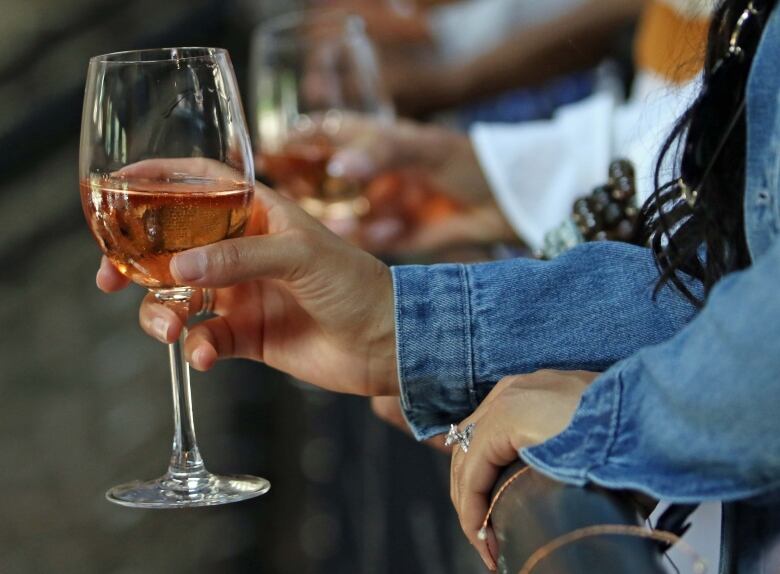The holidays can be lonely for those struggling with addiction. Advocates say connection is key
'To find other people who have your support is the key to sustained sobriety and recovery in life'

Lee-Anne Richardson found her life again after giving up alcohol.
"It's completely transformed my life into something way more colourful, way more meaningful, and a life where I actually, truly love myself and the people around me," said Richardson.
She knows first-hand how difficult the holidays can be for people on the path of sobriety. Work parties and family gatherings can be minefields.
"It was very hard for the first few years to go through Christmas, friends getting together, family getting together and everyone is drunk except for me," Richardson said.
That's why she started her peer-support group, Sober City, a few years ago.
"When I first got sober, I felt like I wasn't part of the community," she said. "The community of Nova Scotia, the community of Halifax, the community of my peers I didn't feel like I was a part of anything anymore."
Thosefeelings of loneliness and isolation can sometimes trigger old habits,Richardson said.
"To find other people who have your support is the key to sustained sobriety and recovery in life."
Rethinking the holidays
Patrick Maubert is the co-founder of UNtoxicated Queers. Thegroup focuses on supporting folks in the LGBTQ community who are dealing with substance use.
Maubert said it can be helpful for LGBTQ people struggling with addiction to re-imagine what the holidays look like for them. They agree with Richardsonthat connection is key.
"The opposite of addiction is community and engagement and togetherness," said Maubert.
"I think the importance of coming together with queer community and offering a space that is safer and especially a space that is sober fosters relationships and a network of new friends, new chosen family."

Both Richardson and Maubert emphasized considering the sober people in your life when giving gifts.
"People assume that if you're over 19, you're going to love an NSLC gift card or a bottle of nice wine," said Richardson. "So it can be a very triggering time for a lot of people."
She said small gestures like having an alcohol-free drink option at parties can make a big difference.
Richardson keeps track of non-alcoholic drink options in HRM, and said the list is only growing. Richardson said the number of people considering sobriety is growing, too.
"I'm seeing a lot more people starting to question their relationship with alcohol because they're realizing that there is another way to live."
Maubert said sobriety has "given me life."
"It's given me opportunities to enjoy the moment, to be in the moment. It's the gift that really keeps on giving."
MORE TOP STORIES












_(720p).jpg)


 OFFICIAL HD MUSIC VIDEO.jpg)
.jpg)



























































































